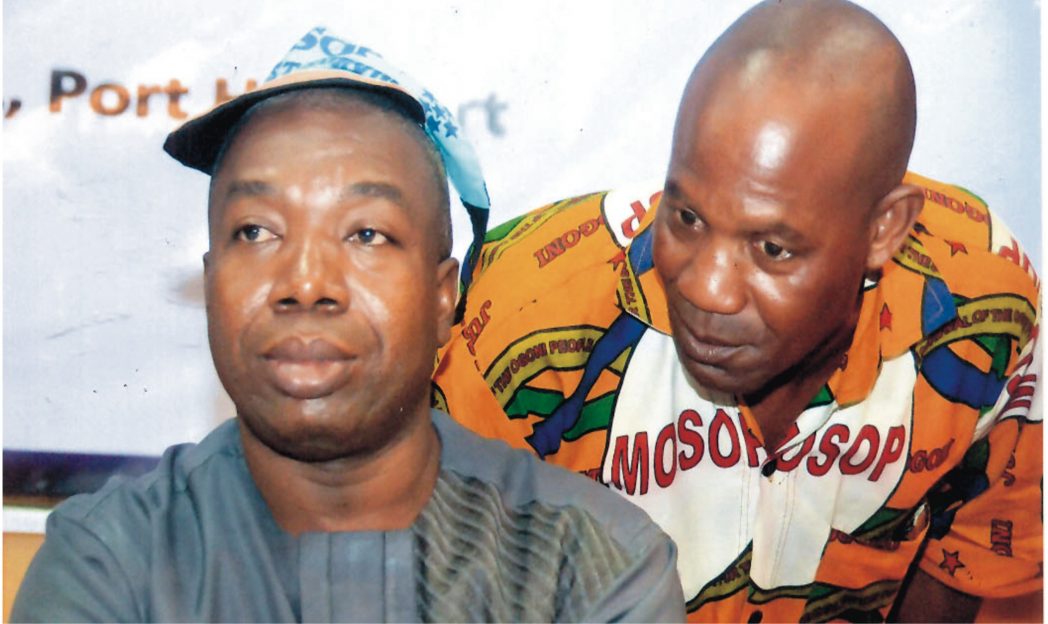Business
Customs Sacks 52 Officers For Corruption
A total of 52 Officers of the Nigeria Customs Service (NCS) have been dismissed for corruption-related offences.
The Comptroller General of Customs, Alhaji Abdullahi Dikko Inde, dropped the hint during a meeting between the Management of NCS and top executive of the Association of Nigerian Licensed Customs Agents (ANLCA) in Abuja recently.
Inde said that the action was to set precedents for others to either turn a new leaf or get sacked as well, stressing that it would be a continuous exercise in order to get rid of those bad eggs in the service.
According to him, anyone who wants to drag the name of the Nigeria Customs Service in the mud would be shown the way out in order to protect the image of the organisation.
Although a source at the meeting revealed that efforts by ANLCA members to plead for re-instatement of the sacked officers failed as their plea and request was turned down by the Comptroller General of Customs.
However, the source also said that the Customs boss commended the current crop of Customs Intelligence Unit (CIU) officers for their professionalism in their duty describing them as the best ever.
On delay in cargo clearance, he hinted that the management of customs would soon come up with the timing of every process in cargo delivery to check corruption and other impediments in the Ports, adding that the Pre-Arrival Assessment Report (PAAR) introduced by the Nigerian Customs said only importers and agents who handled non-compliant cargoes find fault with the introduction of the PAAR in the Ports and called on all for co-operation as it is in line with World best practices.
Inde also promised that it is necessary to place alert on some imports whose values are found to be questionably low, so as to guide field officers in the examination and release of such cargoes without delay.
The meeting which resolved other pressing issues in the sector was attended by National Executive Officers of ANLCA and the association’s Board of trustees.
Business
Kenyan Runners Dominate Berlin Marathons
Kenya made it a clean sweep at the Berlin Marathon with Sabastian Sawe winning the men’s race and Rosemary Wanjiru triumphing in the women’s.
Sawe finished in two hours, two minutes and 16 seconds to make it three wins in his first three marathons.
The 30-year-old, who was victorious at this year’s London Marathon, set a sizzling pace as he left the field behind and ran much of the race surrounded only by his pacesetters.
Japan’s Akasaki Akira came second after a powerful latter half of the race, finishing almost four minutes behind Sawe, while Ethiopia’s Chimdessa Debele followed in third.
“I did my best and I am happy for this performance,” said Sawe.
“I am so happy for this year. I felt well but you cannot change the weather. Next year will be better.”
Sawe had Kelvin Kiptum’s 2023 world record of 2:00:35 in his sights when he reached halfway in 1:00:12, but faded towards the end.
In the women’s race, Wanjiru sped away from the lead pack after 25 kilometers before finishing in 2:21:05.
Ethiopia’s Dera Dida followed three seconds behind Wanjiru, with Azmera Gebru, also of Ethiopia, coming third in 2:21:29.
Wanjiru’s time was 12 minutes slower than compatriot Ruth Chepng’etich’s world record of 2:09:56, which she set in Chicago in 2024.
Business
NIS Ends Decentralised Passport Production After 62 Years
Business
FG To Roll Out Digital Public Infrastructure, Data Exchange, Next Year
-
Maritime2 days ago
Minister Tasks Academy On Thorough-Bred Professionals
-
Maritime2 days ago
Customs Cautions On Delayed Clearance, Says Consignees May Lose Cargo
-
Maritime2 days ago
NCS Sensitises Stakeholders On Automated Overtime Cargo Clearance System
-
Maritime2 days ago
Lagos Ready For International Boat Race–LASWA
-
Maritime2 days ago
Shoprite Nigeria Gets New Funding to Boost Growth, Retail Turnaround
-
Politics2 days ago
I Would Have Gotten Third Term If I Wanted – Obasanjo
-
Sports2 days ago
Bournemouth, Newcastle Share Points
-
Sports2 days ago
Iwobi Stars As Fulham Overcome Brentford


